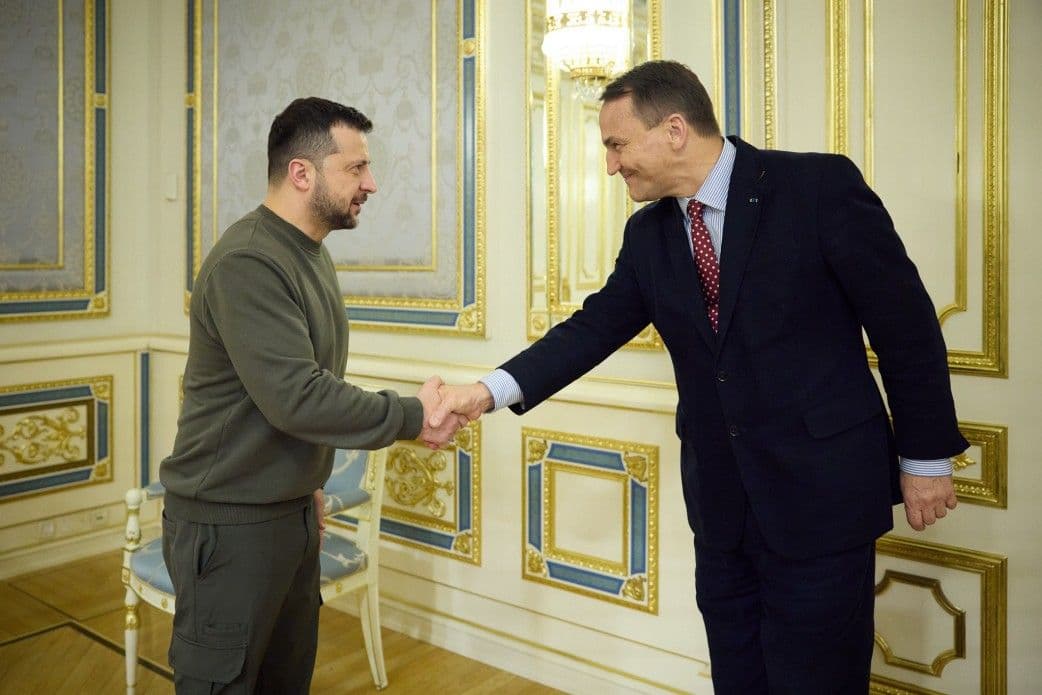Zelensky meets Polish foreign minister, hopes for new page in bilateral relations

President Volodymyr Zelensky told Polish Foreign Minister Radoslaw Sikorski that there was hope for "a new page in our relations" during their meeting in Kyiv on Dec. 22.
Sikorski, an experienced politician who has previously served as Poland's foreign minister, arrived in Kyiv earlier on Dec. 22.
Sikorski was appointed on Dec. 13 by newly elected Polish Prime Minister Donald Tusk. The Polish parliament elected Donald Tusk as prime minister on Dec. 11, ending the eight-year rule of the conservative Law and Justice party (PiS).
Tensions between Poland and Ukraine have risen in recent months, with Polish truckers and farmers continuing a blockade of some of the busiest border checkpoints with Ukraine.
As of the morning of Dec. 22, 3,900 trucks were waiting in line to enter Ukraine from Poland, according to Border Guard Service spokesman Andrii Demchenko.
"We both agree that our bilateral relations need a boost, and that all concerns ought to be resolved in a mutually respectful manner," Zelensky said. "We are very strong neighbors with a common history."
According to Sikorski, the final details of an agreement between Poland and Ukraine are being worked out, which could unblock the border. Polish Deputy Infrastructure Minister Pawel Gancarz came to Kyiv with Sikorski for talks on the issue.
Gancarz said in Kyiv that he hopes "the problem will be solved before Christmas," Polish media outlet Wiadomosci reported.
Sikorski also spoke at a press conference with his Ukrainian counterpart Dmytro Kuleba.
"This is, I believe, the last colonial war in Europe and it must end, and we in Poland believe that its result should be as follows: Russia should lose and Ukraine should win," Sikorski said.
"Ukraine should win this war and Putin should lose it, and at the end of the decade we want Ukraine, within its internationally recognized borders, to be a member of the EU."
Sikorski also met Ukrainian Prime Minister Denys Shmyhal. The two discussed "strengthening economic cooperation and developing the joint production of military equipment," as well as issues of EU integration, Shmyhal said.













